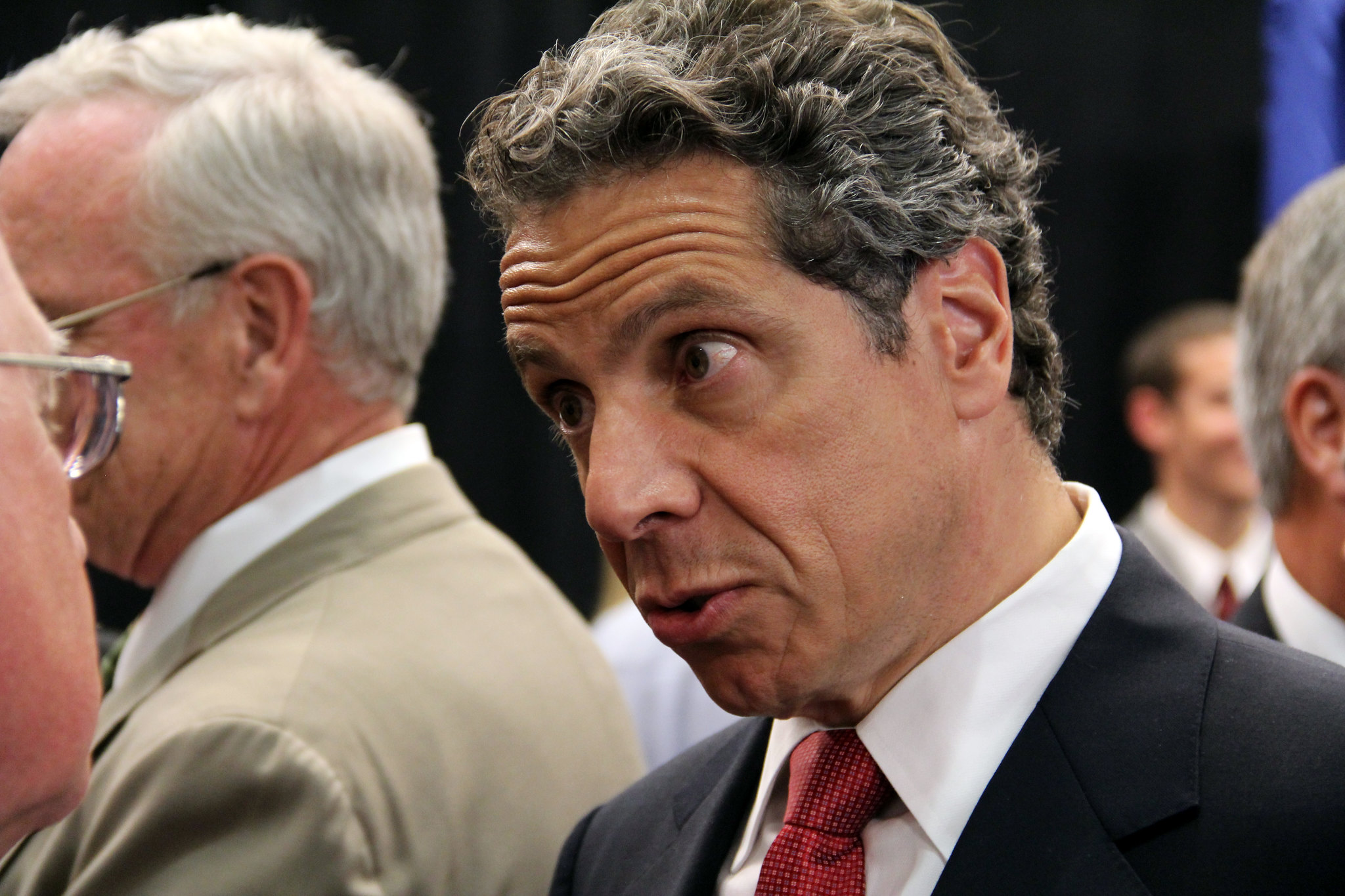On August 10, New York Governor Andrew Cuomo announced his resignation (in two weeks, that is). Lieutenant Governor Kathy Hochul will become the first woman to serve as the state’s governor. With an election looming in November 2022, the chaos in the state’s highest office may have significant consequences for New York drug policy.
Cuomo resigned a week after New York Attorney General Letitia James delivered the results of an investigation that found the governor had sexually harassed multiple women, including former aides and other state employees. He will also be remembered for his inaction and callousness toward marginalized New Yorkers during his 10 years and three terms in office—and, by many, for his perpetuation of the War on Drugs in particular.
“All of us are relieved,” Biz Berthy, a drug policy organizer with VOCAL-NY, told Filter. “Those of us fighting to end overdose in New York have long known the toxicity of his administration. He’s built out a legacy of attacking the most vulnerable among us, especially those susceptible to overdose.”
While calls for indictment grow louder, advocates are also now turning their attention to Hochul and the role she’ll play in addressing—or exacerbating—the state’s overdose crisis.
A Long Record of Cruelty
For more than three years, Cuomo has stonewalled New York City and Ithaca from launching pilot safe consumption sites (SCS), also known as overdose prevention centers. After the NYC pilot got a green light from Mayor Bill de Blasio in 2018, Cuomo swooped in to impose a requirement that any proposed SCS program first undergo a review by the state health department before opening. (Eric Adams, the Democratic nominee for NYC Mayor, also supports SCS). Over 30,000 people have died of drug overdose during Cuomo’s tenure as governor.
Cuomo also actively prevented low-income New Yorkers from accessing medication for opioid use disorder. On New Year’s Day 2020, he vetoed a bill to make buprenorphine and methadone more accessible for people with Medicaid—while removing barriers for people with private insurance.
In April 2020, at the height of the COVID-19 pandemic, Cuomo signed a last-minute, must-pass budget bill reinstating cash bail for most nonviolent offenses, just months after advocates had succeeded in reducing its use. As a result, thousands of people who had not been convicted of any crime were estimated to become incarcerated at a time when coronavirus roiling prisons and jails throughout the country.
Cuomo additionally withheld funding to syringe service programs for six months during the pandemic, causing a shortage of syringes and other critical supplies. This came as a cluster of new HIV cases was reported in upstate Monroe County, and hepatitis C cases were rising statewide. He also berated people who inject drugs in public, and urged law enforcement to arrest them.
Cuomo conspicuously failed to address an historic homelessness crisis in New York state. According to Coalition for the Homeless there are about 67,000 unhoused people on any given night statewide—nearly twice as many as when he took office. This number does not account for unknown thousands of New Yorkers who sleep on the streets. Over the years, Cuomo has enacted numerous state budget cuts that effectively forced NYC to pay an increasing share of the burden to address its own homelessness crisis.
A New Chapter
Hochul will take office on August 24. On August 12, she announced that she will run for a full term in November 2022. But what kind of job will she do?
Hochul was a co-chair on Cuomo’s Heroin and Opioids Task Force. In June 2016, the task force presented a report to the governor with a series of recommendations for addressing opioid use, addiction and overdose in the state.
That report’s recommendations are generally in line with expanding harm reduction and treatment services by increasing funding more and removing barriers—like private insurance requirements—that prevent many people from accessing them. It also called for increased distribution of naloxone through pharmacies and in public schools and homeless shelters, providing more resources and housing for people in recovery without requiring them to be sober, and easier access to medicines like buprenorphine and methadone by repealing private insurance barriers.
The report made no recommendation of SCS, of decriminalizing and expanding access to sterile syringes, or of reforming drug penalties. It may simply be the case that the commission was making asks that it knew Cuomo would support. With Hochul now taking the most powerful office in the state, she has yet to make clear where she truly stands on these issues.
She will, however, likely have a warmer relationship with New York Mayor Bill de Blasio, who praised her as a “very reasonable person” and “an honest broker.” It’s possible that this could bode well for the long-awaited SCS pilot authorization.
“Many advocates are asking who is Kathy Hochul, because Governor Cuomo put her on the sidelines,” Berthy said. “It’s not clear how she approaches certain issues. She’s shown interest in reversing the overdose crisis. She doesn’t have a legacy of approaching these issues from a harm reduction lens, so there is some concern there.”
Berthy and other advocates have called on Hochul to sign an overdose prevention package by International Overdose Awareness Day on August 31. The package includes measures to expand access to sterile syringes, allow all patients on Medicaid to access medicines like buprenorphine or methadone, and provide those treatments in all prisons and jails.
Photograph of Andrew Cuomo by Zack Seward via Flickr/Creative Commons 2.0.





Show Comments